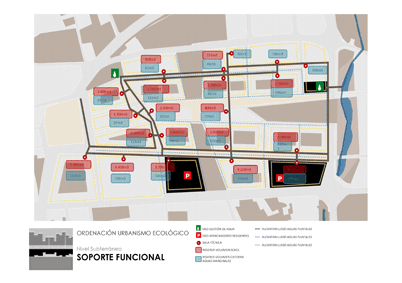Ecological city planning
DOI:
https://doi.org/10.6092/2281-4574/1817Keywords:
urbanismo, ecologiaAbstract
A territory, a city, a neighbourhood are all ecosystems; a mixture of chemico-physical and organic elements related to each other. That which defines an ecological system is the set of rules and characteristics which condition its relationships, and its duration in time is guaranteed by its efficiency and internal organization which applied to the city is translated in the reduction of the use of natural resources and in the increase of social organization. To increase the efficiency of the urban systems is the necessary condition for the formulation of ecological city planning favouring the maximum liveability of sites. Liveability is directly correlated to the optimization of numerous elements (public space, equipment, services, building techniques, innovative technology, social cohesion, biodiversity). To carry out such objectives, ecological city planning proposes a new model of town planning on three levels (subsoil, ground level, and upper level).Downloads
Download data is not yet available.

Downloads
Published
2010-12-30
Issue
Section
Articoli
License
Gli autori che pubblicano su questa rivista accettano le seguenti condizioni:- Gli autori mantengono i diritti sulla loro opera e cedono alla rivista il diritto di prima pubblicazione dell'opera, contemporaneamente licenziata sotto una Licenza Creative Commons - Attribuzione che permette ad altri di condividere l'opera indicando la paternità intellettuale e la prima pubblicazione su questa rivista.
- Gli autori possono aderire ad altri accordi di licenza non esclusiva per la distribuzione della versione dell'opera pubblicata (es. depositarla in un archivio istituzionale o pubblicarla in una monografia), a patto di indicare che la prima pubblicazione è avvenuta su questa rivista.
- Gli autori possono diffondere la loro opera online (es. in repository istituzionali o nel loro sito web) prima e durante il processo di submission, poiché può portare a scambi produttivi e aumentare le citazioni dell'opera pubblicata (Vedi The Effect of Open Access).

